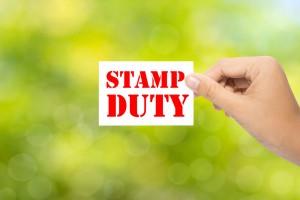Nationwide Building Society is adding its voice to calls for reform of the Stamp Duty Land Tax system.
 The mutual, which is the UK’s largest building society, is asking the Treasury to provide a lifeline to ordinary buyers facing a stamp duty bill for the first time, as well as those at risk of tipping into a higher duty band as they move up the housing ladder into a larger home.
The mutual, which is the UK’s largest building society, is asking the Treasury to provide a lifeline to ordinary buyers facing a stamp duty bill for the first time, as well as those at risk of tipping into a higher duty band as they move up the housing ladder into a larger home.
House prices in the UK have increased by an average of 18 per cent (to Q3 2014) since the 1 per cent stamp duty threshold was last increased in 2006. Despite these rises, the thresholds at which buyers are required to pay increasing levels of stamp duty have remained the same.
This means nearly 70 per cent of home movers now pay stamp duty, compared with less than 50 per cent in the late 1990s. It leaves many ordinary homeowners, who have seen property prices rise, in danger of facing such a significant up front cost that many are put off moving altogether.
Had they kept pace with house price inflation, the minimum thresholds at which stamp duty is payable would have increased at 1 per cent from £125,000 to £145,000, the 3 per cent threshold would have risen from £250,000 to £295,000, the 4 per cent threshold from £500,000 to £590,000 and the 5 per cent threshold from £1,000,000 to £1,180,000.
Current Stamp Duty Thresholds
| Value | Rate |
| Below £125,000 | 0% |
| £125,001 to £250,000 | 1% |
| £250,001 to £500,000 | 3% |
| £500,001 to £1,000,000 | 4% |
| £1,000,001 to £2,000,000 | 5% |
| £2,000,001 and above | 7% |
In a letter to George Osborne Nationwide has urged the Chancellor to consider reforms to stamp duty including raising thresholds to better reflect house price inflation and to stimulate market activity.
Nationwide’s chief executive Graham Beale comments: “Stamp duty now impacts tens of thousands of people every year, incurring a bill of almost £2,000 for those buying a home at the UK average price of £190,000, with the cost increasing threefold for properties costing more than £250,000.
“Our own figures demonstrate the distortion that the current slab thresholds create and highlight the fact that a sale price even £1 over each threshold can result in a hugely inflated bill. This additional cost may even be discouraging some from moving altogether.





